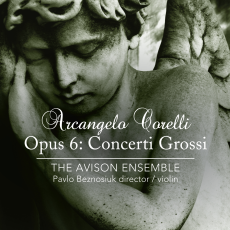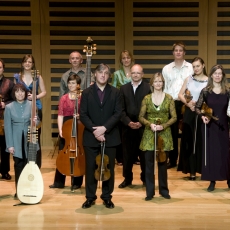The Avison Ensemble - Corelli: Opus 6 - Concerti Grossi - American Record Guide
These Op. 6 violin concertos are a staple in the early and Baroque music world and they have been recorded many times, undoubtedly because their lively beauty never goes out of fashion. Indeed, Charles Burney wrote in 1789, 'the concertos of Corelli seem to have withstood all the attacks of time and fashion with more firmness than any of his other works'. As a composer and performer, Corelli was hugely influential, his admirers including Torelli, Albinoni, Vivaldi and imitators including Handel and Avison-Corelli was hugely popular in Britain.
Most collectors probably understand that these concertos do not entirely match our conception of a concerto, which usually means a soloist (often piano or violin) in dialog with an entire orchestra, as is the case with Vivaldi's violin concertos. Rather, the Corelli concertos have a small group of soloists, called the concertino in dialog with another small group of soloists called ripieno. The latter, in Corelli's case, is formed by two violins, a viola, and bass. The ripieno parts could be doubled, but not the concertino parts. It is easy to see how the ripieno blossomed into a full orchestra and the concertino came to be, in many cases, just one soloist.
These concertos have been recorded quite a few times - not surprising, given their charm as well as their position in the development of music history.
The current release is a good addition - the continuo is harpsichord, as is common for these concertos. This program marks the beginning of a series Linn plans to record with The Avison Ensemble of Corelli's complete chamber works. I quite like the serene and understated approach to the music; no one should ever attempt to use Corelli's music for shock value. This recording does a nice job at bringing out the innate spirituality of the music; it is perhaps not widely remembered that the first eight of these concertos are 'church' concertos, as opposed to chamber concertos; and the church concertos are more polyphonic than the others. Concerto No. 8 is the famous Christmas Eve one, which I love. The writer of the notes finds it ironic that this Concerto has more dances in it than the others, and is the 'least church-like'. I think, on the contrary, that is to be expected because Christmas has traditionally been a time of great joy and celebration, and the Christmas Eve Mass would probably be at midnight, with a certain festivity in the air.
I can recommend this release without reservation; I like it about the best of any I've heard so far from this ensemble, as I think great sensitivity to the music is highly evident.

